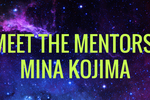How to Prepare your Submission
I, like many, think Genes in Space is awesome. How many of you have said “Genes in Space” the way a voiceover would introduce an epic film? It’s undeniable that the Genes in Space competition is inherently cool. But once you have identified its coolness and have committed to submitting an idea, where do you actually start? Here are my five tips to help you prepare your Genes in Space proposal.
1. PCR: A Primer
Yes, we need primers for a PCR reaction, but that’s not what I’m getting at. Before you can pick a specific topic for your proposal, you must prime or prepare yourself regarding this technology. Polymerase Chain Reaction (PCR) is the core of Genes in Space. You must understand what PCR and how it works. These are are few videos on our Learn page that will help you understand this powerful protocol. You can also listen to my science rap on DNA isolation and PCR.
2. Special Treatment
Although this is a competition, you shouldn’t treat it just as such. Students should look at this experience the way a scientist would a typical research problem; identify a problem or research question you are interested in and passionate about. Whether it’s for a high school project or your PhD thesis, selecting a topic that you are genuinely invested in will engage you more than a topic you don’t connect with. When things in school or in the lab get a little tough, it’s always a powerful reminder to know that what you’re working on is worth it.
3. Research X3
Once you have selected your topic, it’s time to research, research, research! At this point, the topic you are interested in is going to be quite vague and overarching. Researching your topic will help you narrow your focus. For example, if you’re interested in DNA repair mechanisms as an overarching topic, a simple Google search could take you down various paths! You’ll learn that there are multiple DNA repair mechanisms, such as nucleotide excision repair and mismatch repair. Maybe you’ll learn that mismatch repair is a highly conserved process, but that E. coli deploy the mechanism differently than eukaryotes and the majority of bacteria. Wait, I just saw an article about cosmic radiation. What if we test… See, we are already getting more specific!
4. Ask Questions
Science isn’t about what’s known, it’s about the unknown. Scientists ask questions for a living, and you shouldn’t be scared to do the same! As a participant of Genes in Space, you are to identify a mentor (your teacher, science club advisor, even a parent) who will help you along with your proposal. Ask them questions. Heck, ask me questions! Although we cannot provide direct mentoring at this stage, the Genes in Space Team is here to help. You can email us at genesinspace@minipcr.com or by tweeting at @miniPCR with the hashtag #GenesInSpace.
5. Don’t Hold Back
High school Alia would have been too scared to apply to Genes in Space. She wasn’t enrolled in AP Biology and she didn’t particularly find classroom science stimulating. Even though she loved tackling scientific problems outside of school, watched Bill Nye the Science Guy, and wanted to work for NASA, she would have thought she wasn’t good enough to apply. If Genes in Space sounds interesting to you, apply. Whether you are in the seventh grade, have never taken an AP science course, or feel like you have no support at school to help you with the proposal process, I am here to say this: don’t hold yourself back. You don’t need a PhD, and neither do your teachers or your parents, to submit a proposal you are proud of. All it takes is courage, passion, and one scientific question to get you going.

Fun Factoid: I recently received the Passion in Science Award for art and creativity from New England Biolabs for my science songs. At the ceremony, I rapped about PCR in front of Nobel Laureate Sir Richard Roberts.


